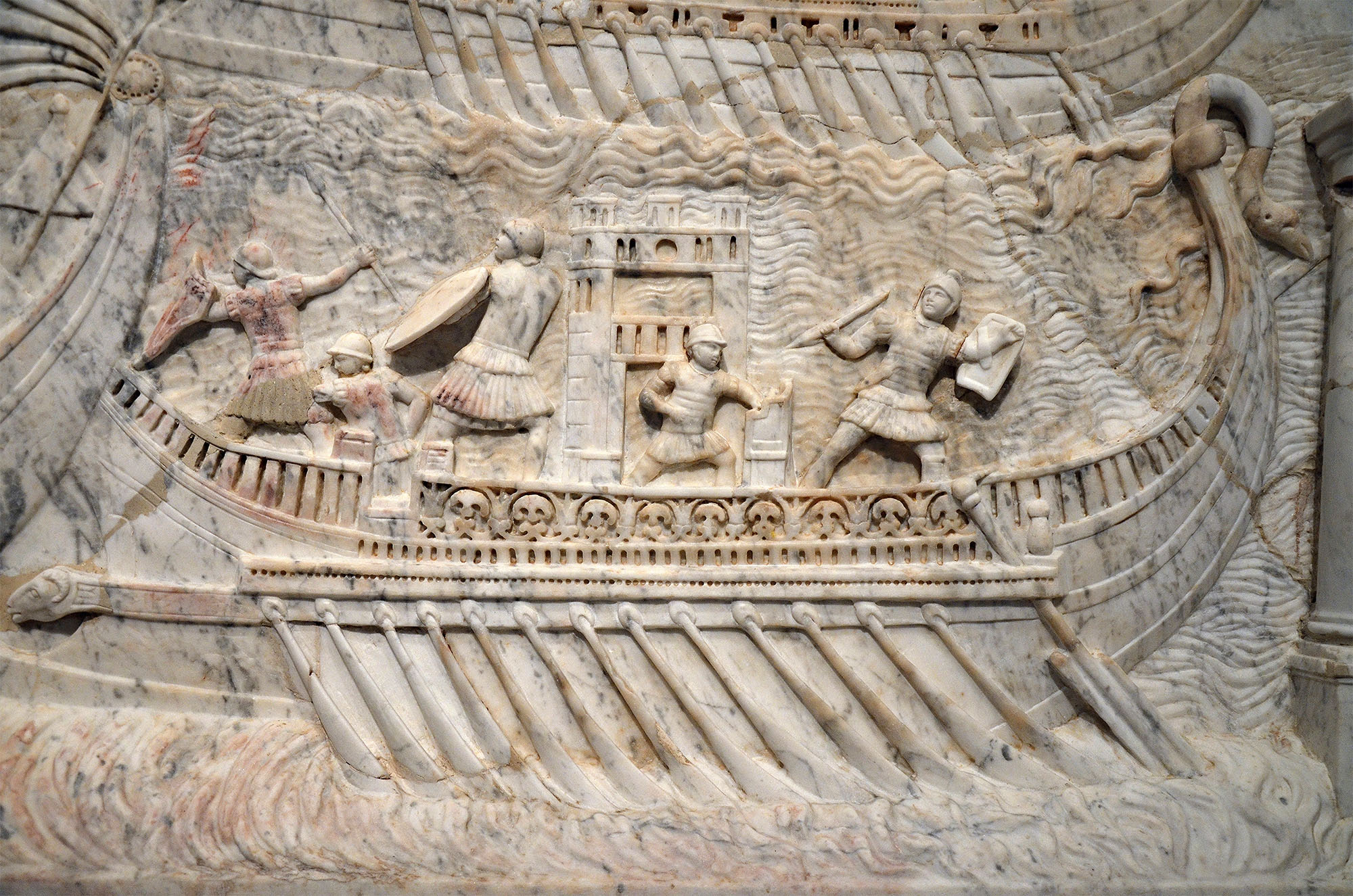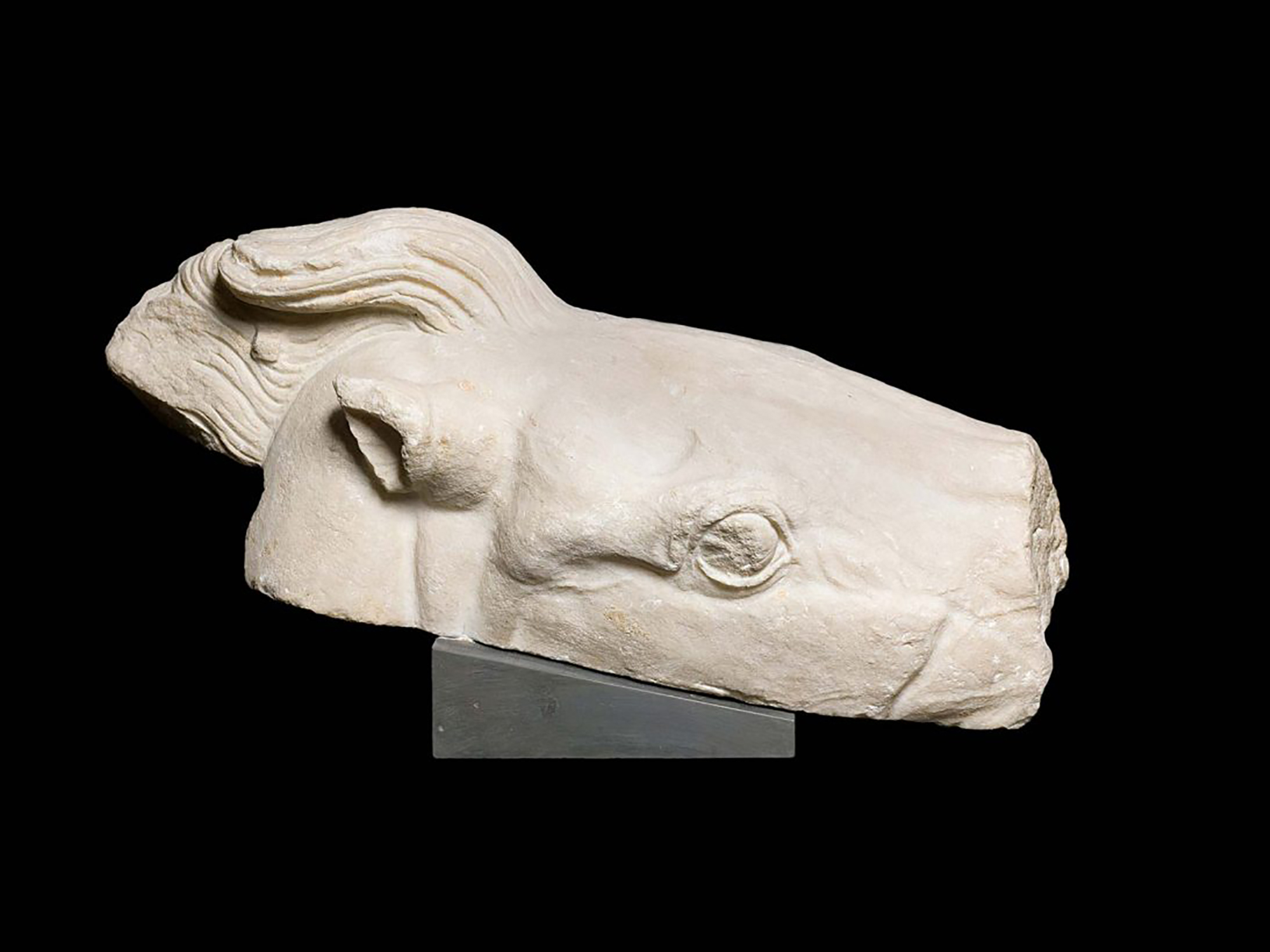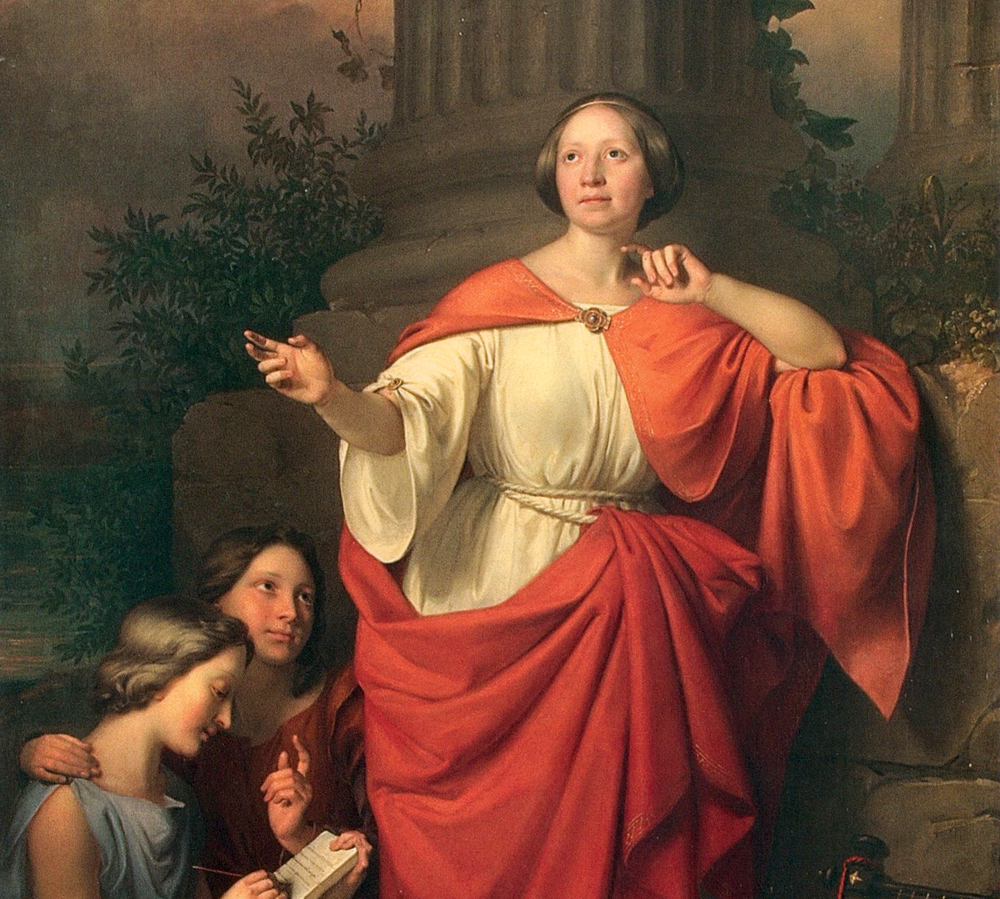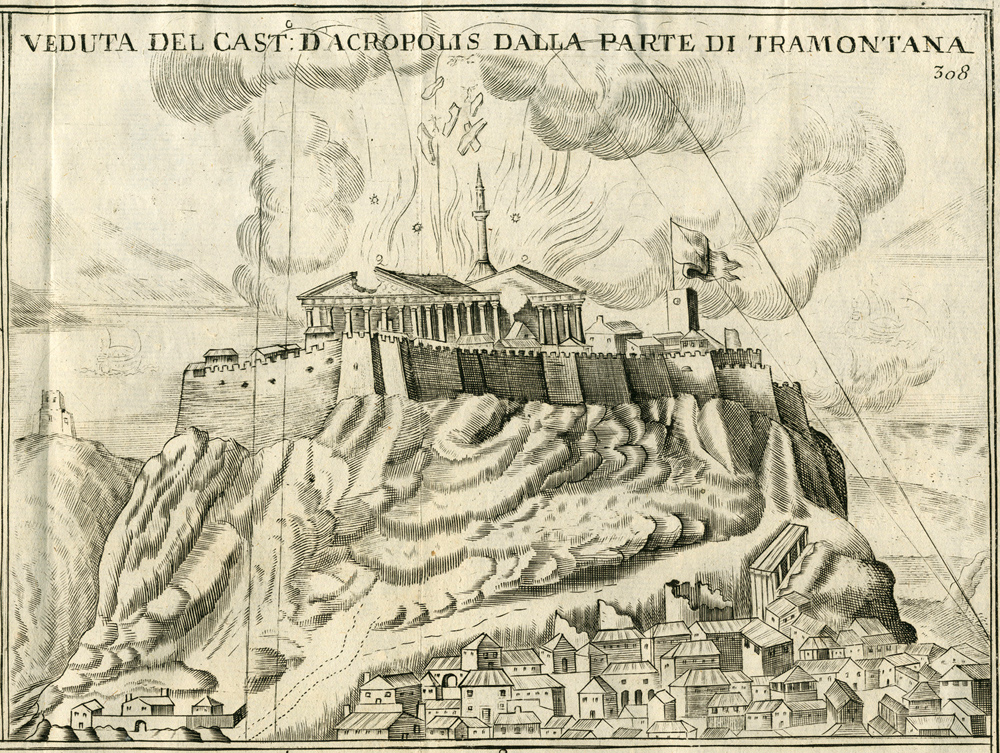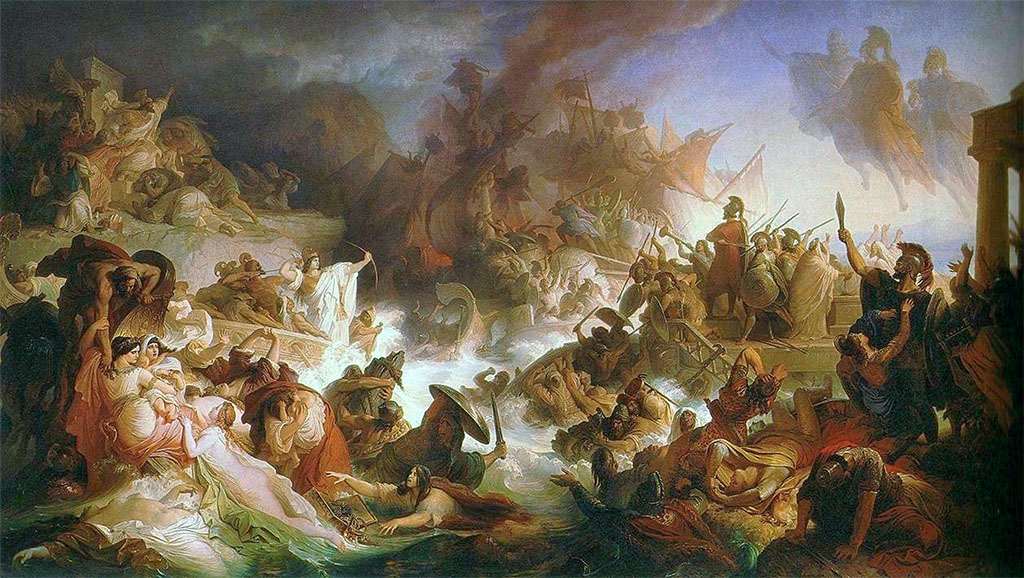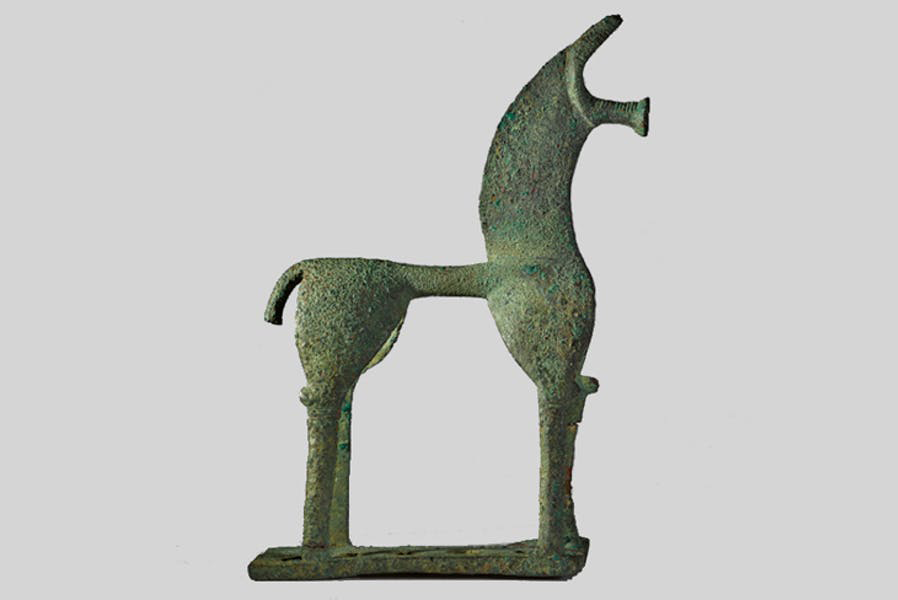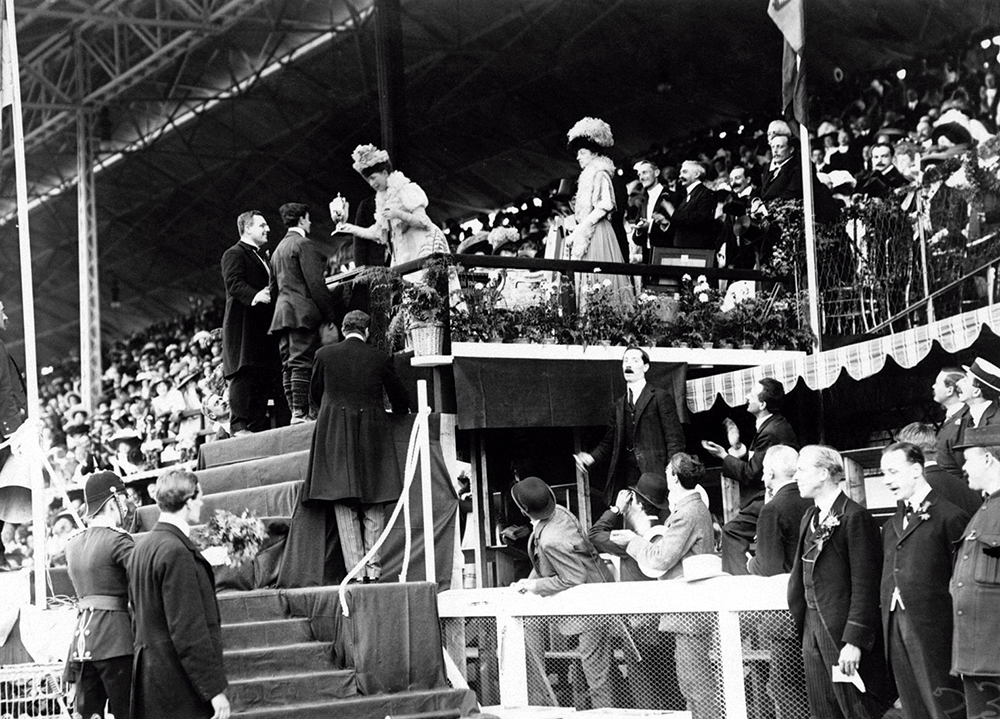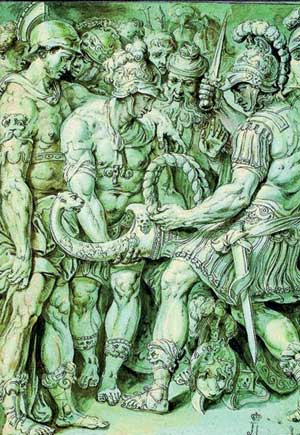
Gordio Frigiako (egungo Anatolia, Turkia) nekazaria zen, eta haren ondasun bakarrak gurdia eta hari tira egiteko idi parea ziren. Frigiarrek erregea behar zutela erabaki zutenean, orakuluari aholkua eskatu zioten eta hark gurdi batean ikusten zuten lehen gizona aukeratzeko esan zien. Hala, Gordio Frigiako errege izendatu zuten, eta monarka berriak, esker onez, Zeusen tenplura eraman zuen gurdia. Haren pertika eta uztarria korapilo berezi batez lotu zituen; soka muturrak korapiloaren barruan omen zeuden ezkutatuta eta, horrenbestez, askaezina zen ia. Inork askatzen bazuen Inperio Unibertsala eskuratuko zuen.
Beti ere kondairaren arabera, Alexandro Handiak, Frigia mendean hartu zuenean, korapiloa askatu ez, baina ezpataz ebaki zuen.
Horregatik, “korapilo gordiarra” esamoldea gainditzen zaila den edo konponezina den eragozpena adierazteko erabiltzen da.
Gulf of Ambracia (Ionian Sea). In the 15th century a. 2 September 31. The Romans achieved victory in the naval battle of Accio and ensured control over Egypt. Therefore, the Greek hegemony in the Mediterranean is concluded on that date, but the Hellenic influence has remained so... [+]
Grecia, a.C. Século IV. Varios pensadores gregos, como Aristóteles ou Heraklides, escribiron sobre os etruscos, recollendo unha opinión negativa sobre o pobo que vivía no centro e norte da península italiana. As mulleres etrurianas foron especialmente criticadas e o... [+]
Antzinako Greziako hainbat tenpluen sarreretan, eskailerez gain, arrapalak topatu dituzte.
Atenas, K.a. 448-432. Akropoliaren gailurrean Iktinos, Kalikrates eta Fidias arkitektoek diseinatutako tenplua eraiki zuten, Atena Partenos jainkosari eskainia.









